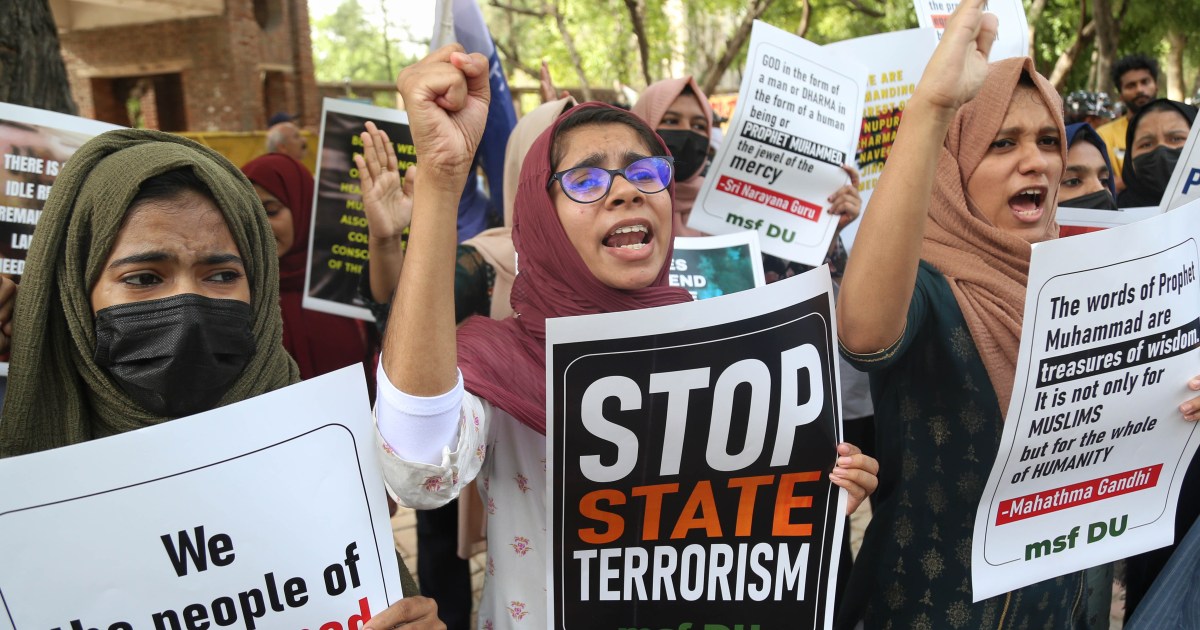Journalists and activists denounced the escalation of the Indian government's measures in cooperation with Twitter to clamp down on prominent figures who defend Muslim causes and support protest movements. This campaign went beyond cyberspace and included the arrest of a number of these figures.
A network of digital media organizations announced that Delhi police had arrested Muslim journalist Muhammad Zubair, who co-founded a fact-checking website, and accused him of insulting religious beliefs via Twitter.
The network condemned the arrest of the Muslim journalist, describing it as an attempt to harass him because of his journalistic work, noting that Zubair - who regularly uses Twitter to talk about the persecution of the Muslim minority in the country - was arrested under two articles in the Law for Preserving Religious Harmony.
Reuters' partner Asia News Agency International, citing Delhi police sources, said Zubair was arrested based on a complaint from a Twitter account that he had insulted Hindus in a 2018 post when he commented on the renaming of a hotel after the god. - Monkey - Hindu "Hanuman".
Hours before his arrest, Zubair said in a post on social media that he had received an email from the Twitter administration informing him that the site had blocked a tweet containing a video of a Hindu right-wing activist calling for Muslims to be attacked and robbed.
Got an email from twitter saying,
In order to comply with Twitter's obligations under India's local laws, it has withheld this tweet in India under IT Act.
There is no action against the person who gave hate speech but the govt doesn't want people to see this video in India.
pic.twitter.com/41xvjjlD0x
— Mohammed Zubair (@zoo_bear) June 25, 2022
Zubair added that Twitter management informed him that "in order to comply with Twitter's obligations under Indian domestic laws, this tweet has been blocked in India under the Information Technology Act."
"There is no government action against the person who gave the hate speech, but the government does not want people to see this video in India," he added.
Earlier, Indian authorities arrested Testa Sittalvad, a prominent activist known for her defense of Muslim victims of the 2002 Gujarat massacre.
Tweeters circulated videos of a protest rally calling for the activist's release in front of a Karnataka state court.
In the same vein, Rana Ayyub, a prominent Muslim journalist targeted by Hindu right-wing campaigns, posted an email from Twitter stating that her account had been banned in India, in compliance with local IT laws.
The case received a wide response, as activists began displaying messages they received from Twitter and demanded the cancellation of the content they tweeted.
"Reporter Rana Ayoub has always been a victim of hate, abuse and trolling. But we haven't seen any action from Twitter to show solidarity with her. It's really disappointing," said journalist Javira Siddiqui.
It's been long Journalist @RanaAyyub is the victim of hate, abuse and trolling but @Twitter @verified @TwitterSupport never taken any action.
Even i had faced worst trolling, reported number of times death rape threats nothing happened.
Really disappointed @paraga @elonmusk https://t.co/DdbBjrNENM
— Javeria Siddique (@javerias) June 27, 2022

